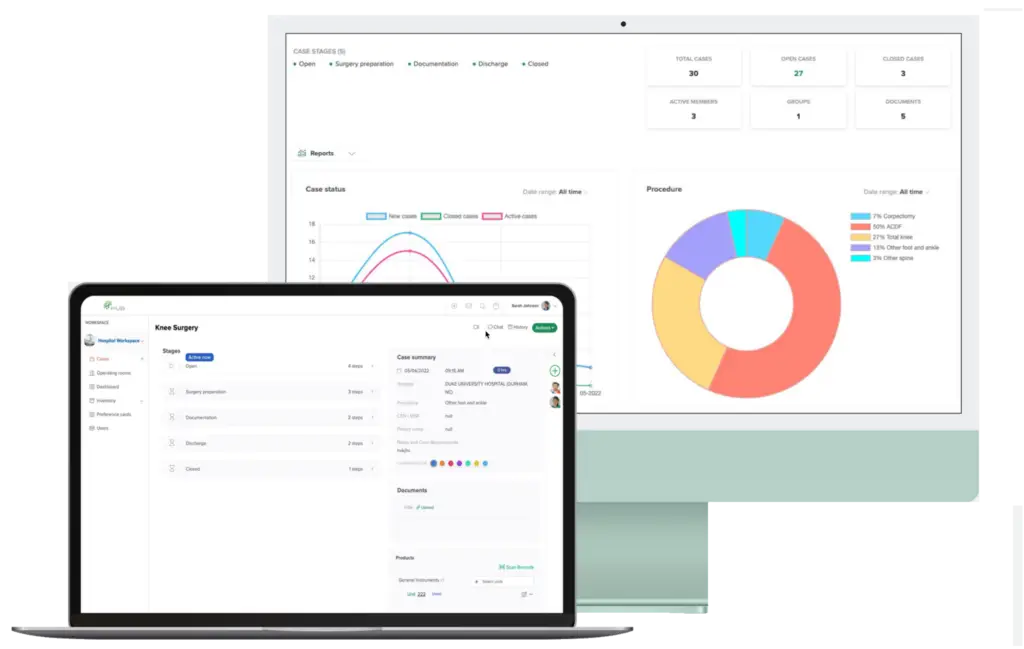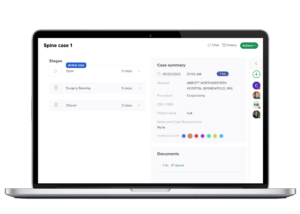The Hidden Costs of Inefficient Referral Management
For many healthcare organizations, referral management is a major pain point. When referrals aren’t processed efficiently, patients face long wait times, staff become overwhelmed, and clinics lose valuable time and revenue. We recently worked with a gastroenterology clinic that was struggling with exactly this issue—backlogged referrals, high call volumes, and scheduling delays were leading to patient dissatisfaction and operational bottlenecks.
Sound familiar? If your organization is experiencing similar challenges, there are proven solutions that can help streamline the referral process and improve patient outcomes.
Common Referral Management Issues
Many healthcare organizations face similar roadblocks in managing referrals effectively. Some of the most common challenges include:
- Referral Backlogs: When referrals are processed manually or through inefficient systems, they can pile up, leading to delays in patient care.
- High Call Volumes: Patients who don’t hear back promptly often call the clinic repeatedly, consuming staff time and creating inefficiencies.
- Scheduling Delays: Limited appointment availability, inefficient scheduling systems, and manual processes slow down the referral-to-appointment timeline.
- Communication Gaps: Patients are often left in the dark about their referral status, resulting in frustration and unnecessary follow-ups.
- Unqualified Referrals: If there’s no structured system for screening referrals, providers end up with incomplete or unnecessary requests, wasting valuable resources.
These issues don’t just create operational headaches—they directly impact patient satisfaction and health outcomes.
The Real-World Impact of Referral Delays
At the gastroenterology clinic we worked with, the referral process was taking 8–12 weeks from referral to diagnosis, and only 60% of referred patients were seen within the recommended timeframe. The delays stemmed from:
- Manual processing of referrals through an outdated system
- Lack of automation in scheduling and patient communication
- Staff being overwhelmed with administrative tasks
- Ineffective follow-up processes leading to unresolved referrals
These inefficiencies were costing the clinic over $600,000 annually in administrative overhead, lost appointments, and staff time spent managing referrals manually.
How to Improve Referral Management
If your organization is facing similar challenges, there are actionable steps you can take to fix the problem:
1. Automate Referral Processing
A digital referral management system can streamline the intake and tracking process. By integrating with existing EHR systems, referrals can be prioritized based on urgency, and automated notifications can be sent to patients regarding next steps.
Impact:
✔ Reduces manual data entry
✔ Eliminates lost or delayed referrals
✔ Improves transparency for patients and providers
2. Enable Self-Scheduling for Patients
Giving patients access to a self-scheduling portal allows them to book appointments based on availability, rather than waiting for staff to reach out.
Impact:
✔ Reduces call volume and staff workload
✔ Speeds up scheduling for routine procedures
✔ Improves patient satisfaction by giving them control over their appointment times
3. Use Automated Communication Tools
Rather than relying on phone calls (which often go unanswered), clinics can implement text, email, and automated phone reminders to keep patients informed.
Impact:
✔ Reduces no-show rates
✔ Improves patient engagement
✔ Ensures timely follow-ups without adding to staff workload
4. Implement Referral Screening Tools
By automating the referral screening process, clinics can ensure that only complete and qualified referrals move forward. This prevents wasted time on incomplete submissions.
Impact:
✔ Reduces administrative workload
✔ Eliminates unnecessary appointments
✔ Speeds up care for the patients who need it most
5. Improve Workflow and Task Prioritization
A centralized referral dashboard can help prioritize urgent cases and distribute workloads more efficiently among staff members.
Impact:
✔ Faster turnaround for critical cases
✔ More balanced workloads for scheduling teams
✔ Reduced backlog of unresolved referrals
The ROI of Fixing Referral Management
When we implemented these changes for the gastroenterology clinic, the results were dramatic:
- 20% reduction in administrative workload
- $75,000+ in annual savings from automation and improved scheduling
- 5–10% increase in clinic throughput
- Better patient satisfaction due to reduced wait times
These solutions not only make operations more efficient but also improve patient care—ensuring that those who need treatment receive it as quickly as possible.
Are Referral Delays Hurting Your Organization?
If your clinic, hospital, or specialty practice is struggling with referral backlogs, high call volumes, or inefficient scheduling, you’re not alone—but there’s a solution. By implementing automation, self-scheduling tools, and optimized workflows, you can reduce administrative burden, improve patient satisfaction, and increase revenue.
Let’s Fix Your Referral Process
We specialize in referral management solutions that help healthcare providers streamline their operations and improve patient outcomes. If you’re ready to eliminate delays, reduce inefficiencies, and create a better experience for both staff and patients, let’s talk.
📩 Contact us today to learn how we can help your organization optimize its referral process. Book a consultation here –






